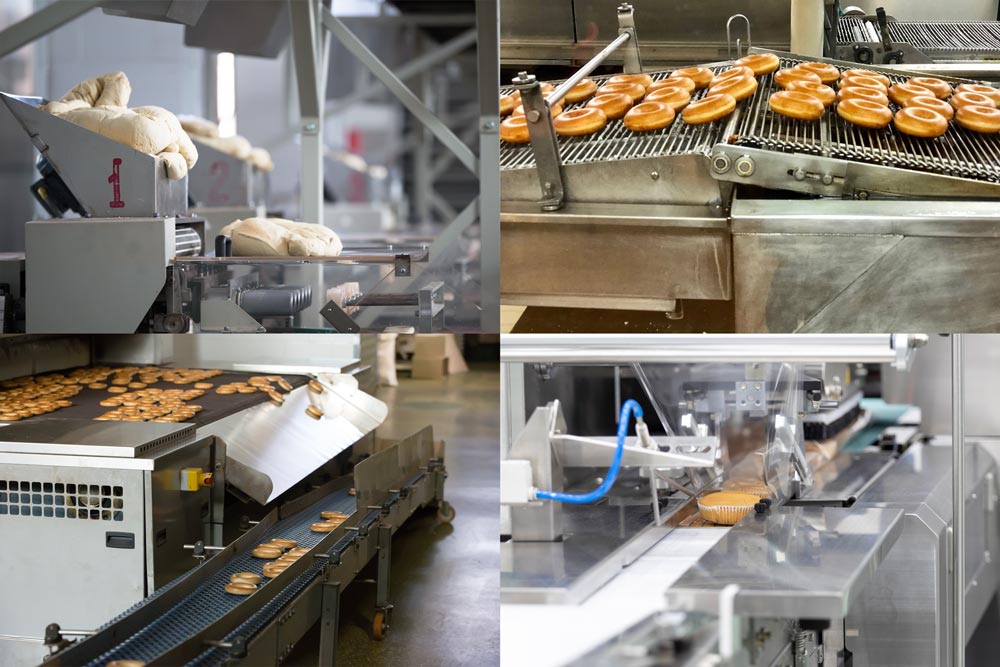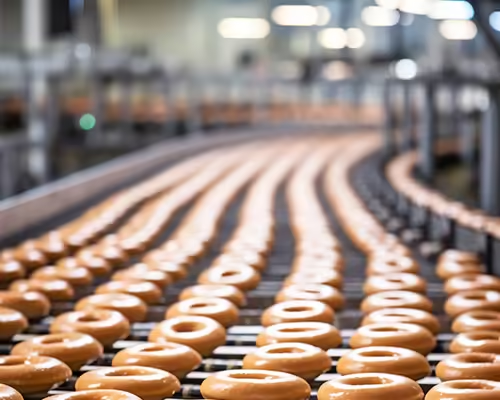



In today’s fiercely competitive baking industry, your bread production line is the backbone of your business. It’s not just a machine—it’s an investment that directly impacts your output, product consistency, and profitability. Neglecting its maintenance can lead to frequent downtime, rising repair costs, and declining product quality, ultimately eroding your profits.
This blog offers 5 essential maintenance tips for 2025 to ensure your bread production line operates at peak performance, maximizing uptime and boosting profits while minimizing costly downtime failures.
Imagine the impact of an unexpected breakdown in the middle of a production run. A sudden downtime can bring your bakery operations to a halt, disrupting the entire workflow. The cost of emergency repairs often far exceeds the price of regular, planned maintenance. For example, a simple routine maintenance task, such as checking the lubrication of a motor, can prevent an expensive motor replacement later. Proactive maintenance is significantly cheaper in the long run, avoiding the hefty price tag of unplanned repairs and the financial losses from halted production.
A regular maintenance schedule offers several key benefits:
A simple calendar reminder for weekly or monthly checks can save you thousands in repairs and lost production time.
Daily cleaning is more than just a hygiene requirement—it’s a critical step in preventing mechanical issues. Keeping your bread production line clean helps remove dough buildup, preventing it from interfering with machinery.
Avoid using high-pressure water jets directly on electrical components like motors and bearings. Water damage can lead to expensive repairs.
Lubrication is the lifeblood of your production line. Without it, parts such as chains, bearings, and gears can experience premature wear, resulting in mechanical failures and expensive downtime.
Be sure to use food-grade lubricants to prevent contamination.
Routine checks and calibrations can catch small issues before they develop into larger, more costly problems. Weekly inspections ensure your equipment is functioning correctly, preventing production halts caused by faulty machinery.
A maintenance log is essential for tracking the health of your bread production line and planning future repairs. It helps your team stay organized and ensures that nothing is overlooked.
This log will help you predict the lifespan of certain components, allowing you to schedule replacements before failure.
Operators are the first line of defense when it comes to detecting issues early. Their expertise can prevent small issues from escalating into larger breakdowns.
A clear reporting procedure should be in place so operators can promptly notify maintenance teams.
While daily upkeep is important, some issues should only be handled by experts. For certain technical problems, calling a professional is essential to avoid further damage.
At Chengwo, we offer comprehensive maintenance contracts and 24/7 emergency support to ensure your bread production line runs without interruption.
Maintaining your bread production line isn’t just about avoiding repairs; it’s a smart investment that boosts your profitability. By following these five essential maintenance tips, you can keep your line running smoothly, minimize downtime, and extend equipment lifespan. The benefits far outweigh the costs, and it all starts with proactive maintenance.
Why is regular maintenance important for my bread production line?
Regular maintenance ensures consistent product quality, reduces downtime, and extends the lifespan of your equipment, leading to significant cost savings over time.
What are some signs my bread production line needs attention?
Watch out for unusual sounds, vibrations, or inconsistent product quality. If any part of the production line is malfunctioning, it can disrupt the entire process.
How often should I perform maintenance on my bread production line?
Daily cleaning, weekly inspections, and lubrication are essential. For more complex issues, a more thorough monthly check should be scheduled.
When should I hire professional technicians for repairs?
Complex problems like electrical failures, control system issues, or safety lock problems should be handled by qualified professionals to avoid further damage.
How can Chengwo help with maintaining my bread production line?
At Chengwo, we offer comprehensive maintenance services, including 24/7 support, repair contracts, and equipment audits to ensure your production line stays in top condition. Contact us to learn more about our custom maintenance solutions!

